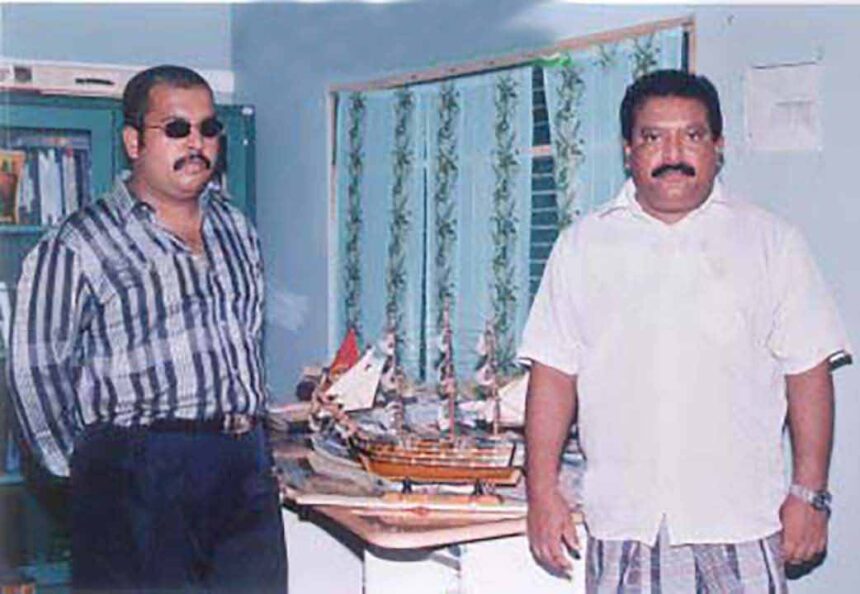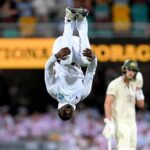The Dravida Munnetra Kazhagam (DMK) youth wing’s state conference in Salem, Tamil Nadu, was marked by the attendance of Inbanithi, great-grandson of late Kalaignar Karunanidhi. This event has stirred debate in Tamil Nadu, Sri Lanka, and among the Tamil diaspora, focusing on DMK’s leadership succession pattern. Critics highlight a lineage pattern from Karunanidhi to his son Stalin, then to Stalin’s son Udhayanidhi, and now Udhayanidhi’s son Inbanithi. This issue is notably contentious among supporters of the Liberation Tigers of Tamil Eelam (LTTE) in the diaspora, who have been vocal on platforms like Facebook.
Whether right or wrong, in DMK, at least, leaders and other positions are chosen through elections democratically. But has any organisation that fought for Tamil Eelam- a separate country for Lankan Tamils, ever elected its leaders democratically? Especially the LTTE, which I was part of, never had even a hint of democratic principles at any time.

The leader of the LTTE, Prabhakaran, who called his organisation a liberation organisation, intended and acted towards making his son Charles Anthony the leader of the LTTE after him. Charles Anthony was raised on the organisation’s funds from birth. But was he trained like other fighters? Not at all.
Every individual who became a part of the Liberation Tigers of Tamil Eelam (LTTE), whether through voluntary enlistment or conscription, underwent a mandatory regimen of basic military training before being deployed to the frontlines. The assignment of leadership roles, such as commanders or other positions of responsibility, was contingent upon an assessment of their combat prowess and effectiveness in the field. Additionally, certain individuals, distinguished by their academic and educational backgrounds, were directly chosen for leadership positions. Nevertheless, these individuals were also required to demonstrate their capabilities in combat situations prior to their appointment. However, Prabhakaran established a specialised division known as the computer wing. He directly appointed his son, Charles Anthony, as the head of this new division. This division of the LTTE was notably allocated greater resources and power compared to other divisions.

The circumstances surrounding Charles Anthony’s appointment as the leader of the Liberation Tigers of Tamil Eelam (LTTE) ‘s computer division remain ambiguous. Unlike other members, he did not undergo the standard basic training protocol nor serve in any combat or administrative capacities within the organisation. Despite this lack of conventional experience within the LTTE’s structure, in early 2006, the computer division was explicitly established for him. He was then assigned significant responsibilities and resources within this new division. This decision raises questions about the rationale and criteria used for his appointment to this prominent role.
The computer unit within the LTTE, primarily tasked with the production of IEDs, including Claymores and other explosives, was more than just a unit focused on computer-related activities. This division, known initially as the Technical Division, was under the adept leadership of Pradeep Master. He was an outstanding fighter, endowed with extensive technical knowledge, and was responsible for significant innovations. Pradeep Master, a skilled warrior from the LTTE’s fourth division, received his training in India, bringing a wealth of experience to his role.

However, his tenure in the division came to an abrupt end when he was sidelined and replaced by Charles Antony following the deliberate highlighting of certain shortcomings in his work. This move led to Pradeep Master being completely excluded from any active role within the organisation. He was ‘frozen’ in the LTTE’s terminology, signifying complete exclusion from duties.

Charles Antony was appointed head of the computer division solely because he was Prabhakaran’s son. Following his appointment, he showed no respect for any commanders and acted like an authoritarian. Other LTTE commanders hesitated to criticise Charles’s actions due to his status as Prabhakaran’s son. They even avoided mentioning Charles Antony’s name in the organisation, respectfully referring to him as ‘Thampi’ (younger brother), a name once used for Prabhakaran in the early stages of his military career. However, Charles Antony did not reciprocate any respect and treated all the commanders and fighters as insignificant.
Charles formed his own battalion, consisting of about 1,000 fighters, and equipped them with the most modern weapons. At one point, nearly half of the Tigers’ resources were under Charles’s control. However, despite his position as a designated leader and commander, Charles had no combat experience and never participated in significant battles. Furthermore, he refrained from sending his fighters into battle as well.
Velavan, who had once served as Prabhakaran’s personal bodyguard, was later appointed in charge of Imran Pandian’s battalion and had been acquainted with Charles Antony since the latter was around 12 or 13 years old. During a period of active combat, when Velavan’s battalion was facing a shortage of personnel, he held several meetings with Charles Antony to request reinforcements from Charles’s battalion personally. However, Charles consistently refused these requests. Velavan shared this incident with me in a personal conversation, clearly conveying his profound disappointment and heartbreak caused by Charles’s behavior.
The first battle in which Charles Antony participated was the Thevipuram battle in February 2009, just a few months before the LTTE was militarily vanquished. The battle was led by Sornam, with Charles Antony serving as one of the commanders. During the combat, Charles Antony and his troops fled the battlefield cowardly, leaving behind approximately 500 advanced rifles. This act became a subject of ridicule within the Tigers’ circles.

I can confidently state that no one in the Tigers’ organisation speaks highly of Charles Antony. Prabhakaran appointed his inexperienced, ill-mannered, and unskilled son as his undeclared heir, entrusting him with half of the Tigers’ military strength. In this context, the question arises: how can those who follow such a leader be justified in criticising DMK?
Currently, within the circles of LTTE supporters, there is a noticeable dependence on the figure of Dwaraka, who is represented as the daughter of Prabhakaran, to revive their movement. I am confident that she is not the actual Dwaraka, but these implications extend far beyond her identity. Using Prabhakaran’s purported daughter, real or not, raises significant questions about the LTTE’s operational principles. This trend should be viewed as an idolisation of Prabhakaran and his family, deviating from the fundamental ethos of the movement. It brings to light a critical issue: Are LTTE supporters mirroring political parties like the DMK, which openly celebrate the legacies of their leaders?



